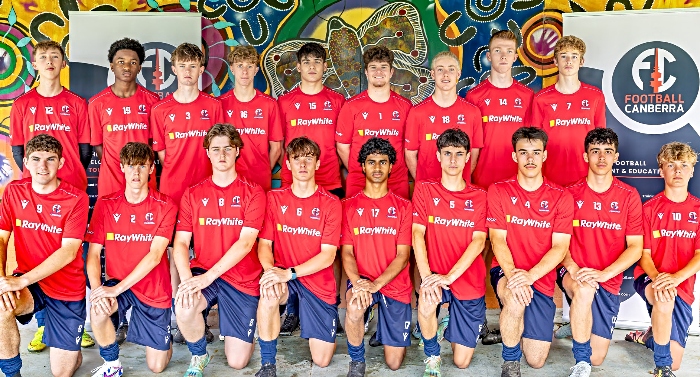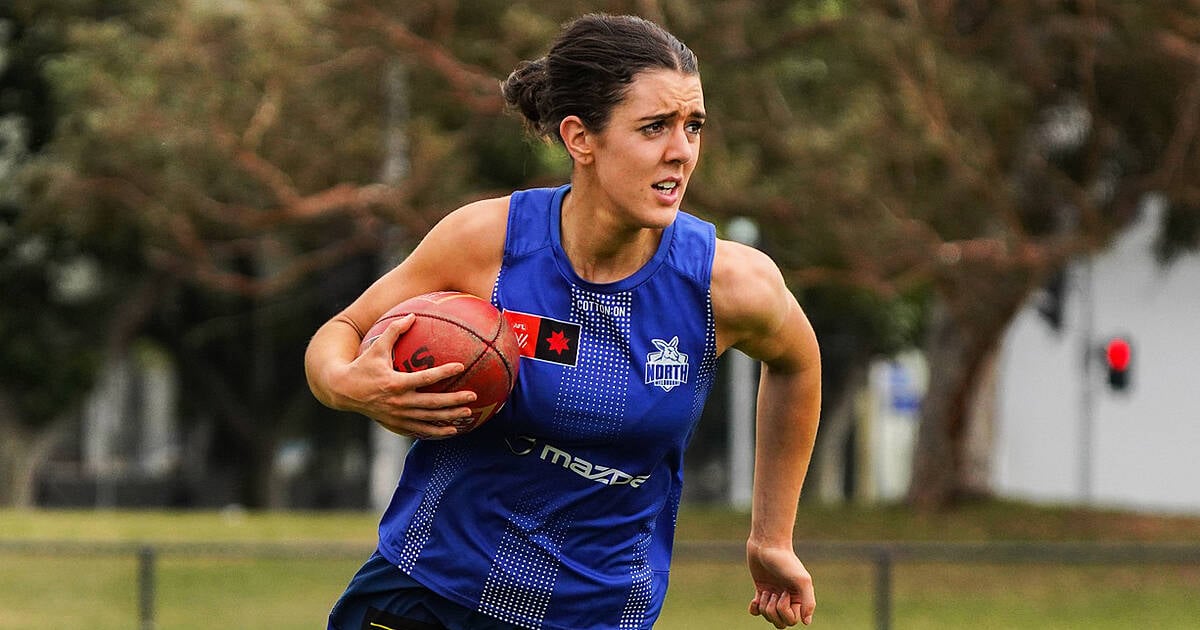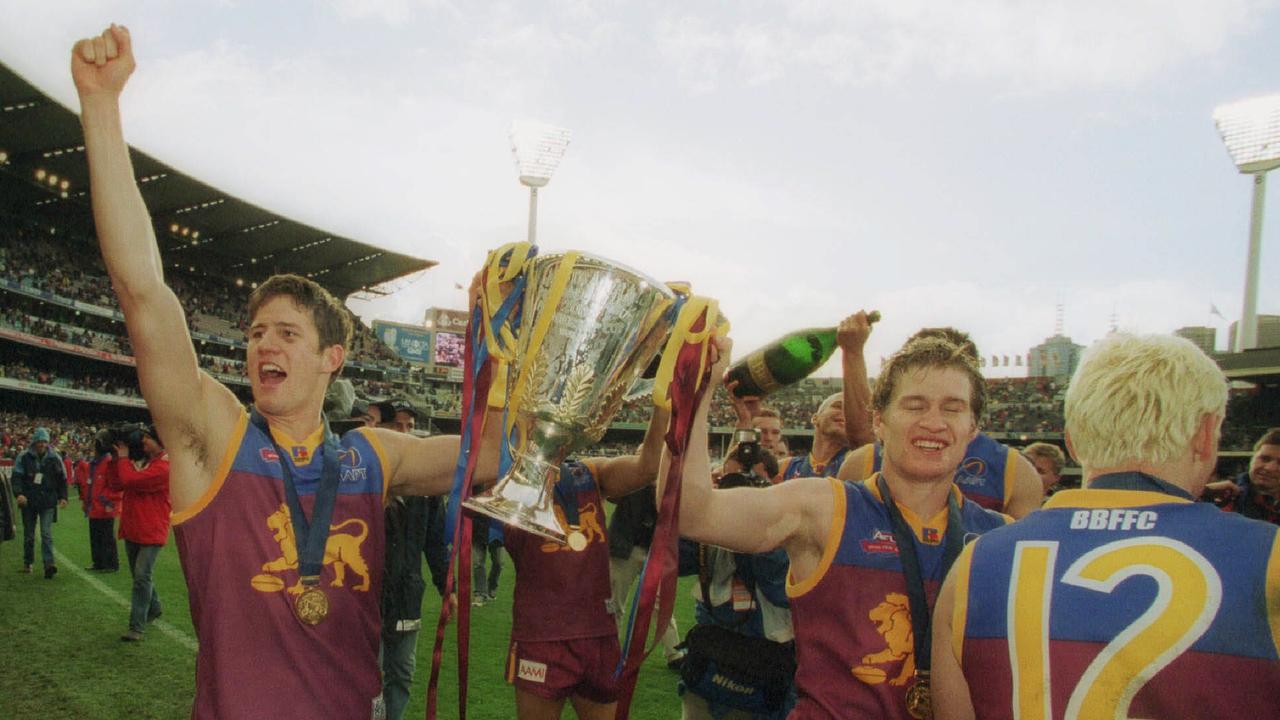‘I didn’t deserve to be on an AFL list’: Pies champ admits early career issues as he joins Hall of Fame

- by Admin
- June 18, 2024
Dane Swan does not hesitate to pinpoint the fork in the road that set on him on the path to a glittering AFL career and eventually induction into the Australian Football Hall of Fame.
“When I got arrested,” the Collingwood cult hero said at Tuesday night’s induction ceremony.
“That was fun.”
A self-confessed “s***head” during his junior days, who railed against authority, Swan initially believed football was all about fun and games off the field when he first arrived at the biggest club in the land.
“I thought playing AFL was all about getting drink cards on a Saturday night,” he said.
“I’d give a lot of effort; it was all on a Saturday night.
“There was no effort during the day and I didn’t deserve to be on an AFL list.
“I got in that blue and got in trouble and thought I was going to be sacked.
“You don’t know what you’ve got until it’s gone. It’s very cliché, but it rang true with me.”
Swan was arrested for getting into a fight with bouncers and a cleaner at Federation Square at the end of 2003, in his second year at Collingwood. He was charged and pleaded guilty to his involvement in the fight, which left the cleaner with a permanent brain injury.
(Getty Images: Ryan Pierse)
His father Bill Swan, a Victorian Football Association great, told the young player to walk away if he was not interested in an AFL career.
Club leaders, including legendary coach Mick Malthouse, sat Swan down and told him some brutal home truths while urging him to repay their faith.
He turned it around and went on and to become a Magpies great, starring in the famous 2010 premiership and winning the Brownlow Medal a year later.
Swan was an All-Australian for five consecutive seasons (2009-2013) and won Collingwood’s best-and-fairest award three times (2008-2010).
“I was just very, very lucky,” he said.
“There were so many players that came in that were better, harder workers, faster, fitter, stronger and all those kinds of things.
“I’ve just got no idea why they kept me. I was like a cockroach, they just couldn’t kill me.
“Mick [Malthouse] obviously saw something in me.”
Swan credits former teammates Chris Tarrant and Ben Johnson, among others, for setting him straight — or at least straighter.
The pair were part of a 35-strong entourage at Tuesday’s induction ceremony, along with fellow Collingwood “rat pack” members Heath Shaw and Alan Didak.
“Those three or four years when you’re with your best mates, like the ‘rat pack’, who are here today, it felt like it went for six months,” Swan said.
“You play at the biggest club in the country, you have one of the bigger profiles, I was going OK, we played hard, we partied hard and we just had a great time.
“We barely lost and those are the moments you wish you could have back.”
Malthouse saluted Swan as one of the best big-game players of his generation.
“His performances in finals and Anzac Day are quite remarkable because of the game, the big stage,” the 2010 premiership coach said.
Ever the pot-stirrer, Swan pointed out during his acceptance speech that he was still not a member of Collingwood’s Hall of Fame.
“Obviously you don’t rate me as highly as the AFL [does],” he smirked.
“But they know I can be bribed and bought pretty easily and they bought a table for my mates tonight, so we’re square.”
Graham happy to go around again at age 72
South Australian football legend Rick Davies estimates former Sturt teammate Michael Graham has played more games at a decent level than anyone else in the sport’s history.
At 72 years of age, the man dubbed ‘The Flash’ isn’t quite ready to give it away.
“I was thinking I might have one more go in Fremantle this year — the Super Rules (national carnival),” Graham said upon being inducted into the Australian Football Hall of Fame.
“I’m still pretty good.”
A champion in South Australia and the Northern Territory, Graham played more than 500 games at state league level and won premierships with Sturt (two) and St Mary’s (three).
The dashing half-forward’s trademark — as noted in his nickname — was his speed across the ground.
Graham represented SA 11 times and starred on the biggest stage the SANFL had to offer, but developed his greatest attribute in more humble surrounds.
“I used to chase rabbits in Penola, where I lived,” Graham said.
“I suppose if you chase rabbits you get a bit of speed.”
Davies, himself inducted into the Hall of Fame in 2013, marvelled at Graham’s ability on the field.
“I don’t think I’ve seen anyone catch him,” Davies said in a video tribute to his great friend.
“He could kick the ball and he could mark the ball.
“He used to love to fly and mark it on his chest.
“He was just an absolute genius.”
Graham entertained the crowd with stories of his childhood and playing career, including one of his greatest football memories — Sturt’s 1976 grand final win over rivals Port Adelaide.
The game was played in front of a record 66,897 fans at Football Park, with many spilling over the boundary fence before the game got underway.
“I’m lucky I got there early — for the first time at any game probably,” Graham said.
“Some of our team got stuck down the road and had to walk in the traffic jam.
“When we ran out onto the ground there were people sitting all around the oval.”
2024 Australian Football Hall of Fame inductees
(Getty Images: Michael Willson)
MICHAEL GRAHAM (SANFL/NTFL)
*282 games for Sturt, 1971-85, 455 goals
*230 games for St Mary’s (NTFL) 1969-70 to 1986-87
CHRIS MCDERMOTT (SANFL/AFL)
*277 games for Glenelg 1981-90 and 1995-96, 184 goals
*117 games for Adelaide Crows 1991-96, 31 goals
* 10 games for North Adelaide 1997
RALPH ROBERTSON (NSW Pioneer)
*St Kilda 1899-1900, 14 games
*East Sydney 1903-1908, estimated 80 games
*North Shore 1909-14, estimated 70 games
RAY SCHOFIELD (WAFL)
*277 games for West Perth, 1943-58, 261 goals
DANE SWAN (AFL)
*258 games for Collingwood, 211 goals
KELVIN TEMPLETON (VFL)
*143 games for Footscray 1974-82, 494 goals
*34 games for Melbourne 1983-85, 99 goals
LEGEND ELEVATION: JASON DUNSTALL
* 269 games for Hawthorn 1985-98, 1254 goals
AAP
Sports content to make you think… or allow you not to. A newsletter delivered each Saturday.
Posted , updated
The Latest News
-
December 25, 2024Where to watch Australia vs. India 4th Test: Free live stream, free-to-air channel, start time for cricket match | Sporting News Australia
-
December 25, 2024Gearing Up for Australian Open, Nick Kyrgios Elevated in Bold Predictions From Renowned Tennis Experts
-
December 25, 2024Dads’ day out! Australian stars unwind with with wives, kids at MCG. Watch | Cricket News – Times of India
-
December 25, 2024Border-Gavaskar Trophy: What is Australia’s record in Melbourne in Test matches? | Sporting News Australia
-
December 25, 2024India must continue to exploit ‘brittle’ Australian line-up: Ravi Shastri | Cricket News – Times of India





